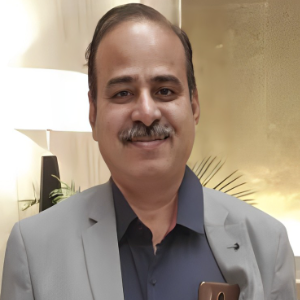Malignant cancer is a type of skin cancer that is often seen in people who have had sun damage in the form of sunburns, tanning, or prolonged ultraviolet radiation exposure. It is characterized by uncontrolled growth of abnormal cells in the skin that spread rapidly and can lead to the death of healthy or nearby skin. Malignant skin cancer is the most dangerous type of skin cancer as it has the greatest potential to spread to other areas of the body and become life threatening. It is the deadliest form of the 3 major skin cancers: basal cell carcinoma, squamous cell carcinoma, and malignant melanoma. The primary risk factor for malignant skin cancer is ultraviolet radiation from the sun or tanning beds, although it can also form in areas that have had radiation therapy or long-term exposure to arsenic or industrial chemicals. Certain genetic mutations can also increase the risk of developing this cancer. The most common symptom of malignant skin cancer is the appearance of a growth on the skin that may be raised, scaly, and red or dark in color. Other symptoms may include itching or pain , an ulcer or sore that won’t heal, or changes in mole size. If you suspect you may have malignant skin cancer, it’s important to seek medical attention immediately. Diagnosis must be made promptly as delaying can reduce the chance of recovery or increase the risk of death. After physical examination and biopsy, the doctor can identify the type and grade of the cancer and accurately assess its stage. Once identified, the treatment plan must be tailored according to the stage of the cancer and other factors. Surgery is the most common method of treatment and may be supplemented with radiation, chemotherapy, immunotherapy, or clinical trials. With early diagnosis and prompt treatment, malignant skin cancer can be successfully managed. Although there is no way to completely prevent it, it is important to protect yourself from ultraviolet radiation exposure whenever possible.

Ravi M Rathod
KMCRI, India
Dechelette Corinne
La Peau Autrement, France
Irina Sergeeva
Novosibirsk State University, Russian Federation
George Sulamanidze
Plastic Surgeon at Clinic of Plastic and Aesthetic Surgery and Cosmetology TOTALCharm, Georgia
Nino Tsamalaidze
Ltd Karabadini+, Georgia
Lina Petrossian
California University of Science and Medicine, United States
Surajbala Khuraijam
Manipur Health Services, India
Shrutimita Pokhariyal
Symbio, India
Yasser Mohammed Hassanain Elsayed
Egyptian Ministry of Health, Egypt



Title : Paraneoplastic Autoimmune Multiorgan Syndrome or PAMS: Paraneoplastic pemphigus revisited
Sergei A Grando, University of California Irvine, United States
Title : Modern non-invasive methods for in vivo assessment of skin
Georgios N Stamatas, SGS, France
Title : Personalized and precision dermatology through the view of biodesign-inspired translational & data-driven applications: Revolutionary skin treatments for every concern in clinical dermatology integrating skin care experts and consumers
Sergey Suchkov, N.D. Zelinskii Institute for Organic Chemistry of the Russian Academy of Sciences, Russian Federation
Title : The next generation of threads: Lifting, volumization, and biostimulation in one powerful triple action
George Sulamanidze, Plastic Surgeon at Clinic of Plastic and Aesthetic Surgery and Cosmetology TOTALCharm, Georgia
Title : Lymphoproliferative diseases in the practice of a dermatologist
Irina Sergeeva, Novosibirsk State University, Russian Federation
Title : Art, skin, and dermatology: Interdisciplinary perspectives
Dechelette Corinne, La Peau Autrement, France
Title : Comparative efficacy of omalizumab and dupilumab in children with Chronic Spontaneous Urticaria (CSU): A retrospective cohort analysis
Molynna Nguyen, University of Toledo, United States
Title : "Mirror mirror on the skin” — A low-cost community strategy to reduce melanoma disparities in Washington, D.C.
Kayla Sampson, Georgetown University School of Medicine, United States
Title : Vitiligo: Not just an aesthetic disorder
Mateja Starbek Zorko, University Medical centre Ljubljana, Slovenia
Title : Personalized and Precision Medicine as a unique avenue to have the healthcare model renewed to secure the national biosafety: Advanced skincare solutions in individualized cosmetology, reconstructive plastic surgery and the modern beauty
Sergey Suchkov, N.D. Zelinskii Institute for Organic Chemistry of the Russian Academy of Sciences, Russian Federation